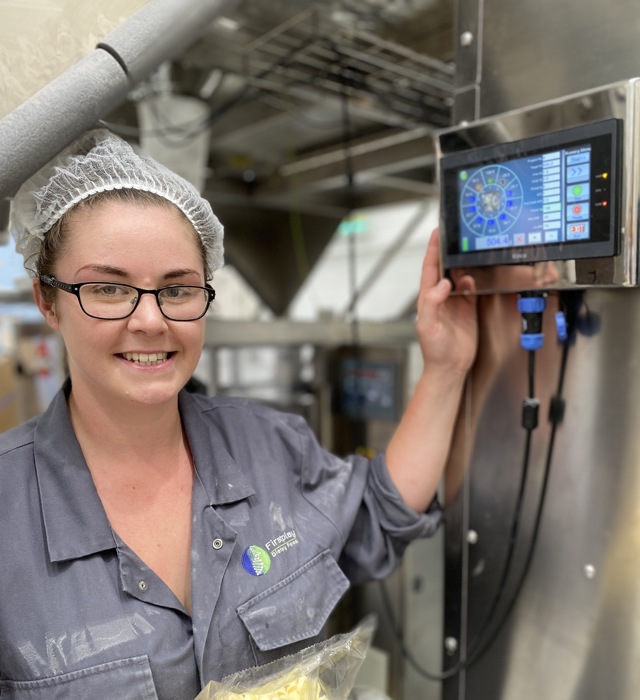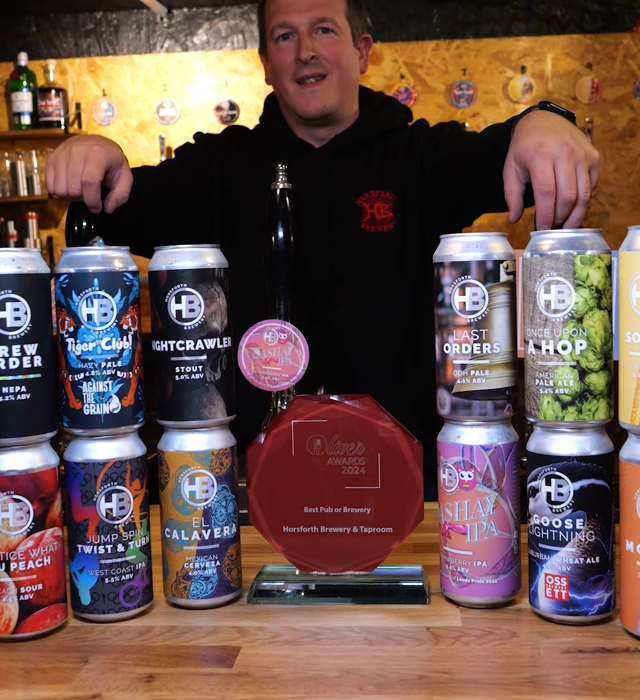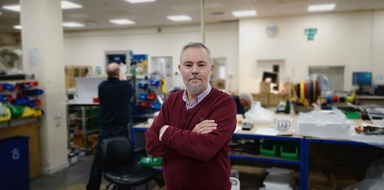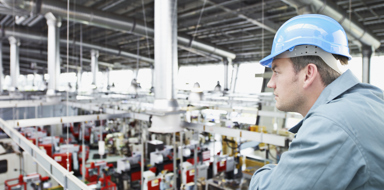
A bubble tea kit manufacturer has transformed its production line and unlocked international growth after investing in automation with the support of Made Smarter.
Bubble Panda, based in Manchester, sells thousands of flavour combinations direct-to-consumer. Through a technology grant, leadership training, and new partnerships, the company has automated key processes, increased productivity, and positioned itself for long-term, sustainable expansion.
Scott Harasyn, Founder, said: “Our bubble tea kits are a dynamic, ever evolving product which brings fun and flavour to homes across the UK. Thanks to support from Made Smarter, we’re now investing in automation which has unlocked the next stage of our growth, enabling us to not only continue innovating with exciting new products, but to scale our operation internationally.”
Bubble Panda Case StudyMade Smarter’s partnership approach with other organisations has been incredibly helpful, demonstrating what was possible for Bubble Panda now and in the future
Scott Harasyn, Founder
Bubble Panda began in 2020 when entrepreneur Scott Harasyn set out to bring authentic, shop-quality bubble tea to homes across the UK. What started on his kitchen table during the Covid pandemic quickly grew into an 8,000 square-foot operation producing ready-to-make kits using premium global ingredients and recycled rPET packaging.
Rapid growth and a highly customisable product created increasing operational pressures. The semi-automated Inline SL4 filling and sealing machine could not keep pace with demand. Operators had to manually feed tubs and carry out frequent tooling changes between different sizes, each involving long heating and cooling cycles. These repeated interruptions limited throughput, reduced consistency, and tied staff to repetitive, physically demanding tasks.
With demand rising and plans to expand into European and US markets, the existing system could no longer support the level of scale required. Scott recognised that automation was essential to improving efficiency, increasing capacity, and creating space for continued innovation.
Working with Made Smarter, Bubble Panda received expert guidance to assess its production challenges and identify the most suitable technology. The business then secured grant funding to invest in a RotoFill atmospheric reel-fed filling and sealing machine supplied by Packaging Automation Ltd.
The new equipment fully automated the filling and sealing process, integrating tub denesting, powder and syrup filling, heat sealing, and conveyance into a single continuous line. This removed the need for operators to manually feed tubs or undertake difficult tooling changeovers.
The system was fitted with efficiency-tracking software that monitors output, detects slowdowns, and provides real-time performance data. This enabled the business to analyse workflow, identify bottlenecks, and make informed decisions about maintenance and scheduling.
Alongside the technology investment, Scott joined Made Smarter’s Leading Digital Transformation (LDT) programme, delivered with the University of Salford and Manchester Metropolitan University. The course gave him space to step back from day-to-day operations, reflect on the company’s digital journey, and build a structured strategy for managing change and engaging his team.
The impact of automation was immediate and transformative. Production time was reduced by more than 80 per cent, while downtime between changeovers fell by 90 per cent. Bubble Panda tripled its output capacity and can now meet rising demand while preparing to supply new customers in Europe and North America.
The business also established two dedicated production lines, creating built-in resilience and continuity. If an issue occurs on one line, the second ensures orders can still be fulfilled, reducing downtime and protecting customer service.
Quality and consistency improved across all products. Automated filling reduced waste from overfilled tubs, while heat sealing became more accurate and reliable. Fewer errors meant less rework and lower material use, contributing to stronger sustainability performance.
The shift to automation allowed staff to move away from repetitive manual tasks into roles such as quality control, data analysis, and process improvement. This created opportunities for upskilling and strengthened employee engagement. Scott introduced short improvement cycles, enabling the team to test and refine ideas quickly and apply lessons from the new system across wider operations.
The project also supported Bubble Panda’s environmental goals. Shorter production runs and more precise filling reduced energy use and waste, while sourcing equipment from a UK supplier strengthened the local supply chain and reduced transport emissions.
Scott said: “As a rapidly scaling business, taking the time away to work on our digital transformation through the LDT programme was difficult but essential. It enabled me to focus on our key challenges and develop a strategy to improve key areas. One of the most important learnings from the programme was the importance of getting buy-in to the vision from my team, and the use of sprints to develop and deliver ideas swiftly into the business.
“The learning experience from adopting technology has also better equipped me for future investments. By seeing first-hand how additional, often overlooked benefits can emerge, I now feel more confident in identifying wider opportunities and assessing future solutions.”
Following the RotoFill implementation, Made Smarter introduced The Bubble Panda to the Northern Engineering and Robotics Innovation Centre (NERIC) who identified immediate and future-focused improvements and automation solutions.
NERIC first delivered rapid value by restoring a non-operational taping machine and immediately tripling its output.
The core project was the design and testing of a custom dual-robot automation cell, demonstrating high-speed, reliable pick-and-place of Bubble Panda’s tubs at a four-second cycle time, with scope to go faster. The cell integrated vision systems for quality control, accuracy and repeatability under real operating conditions.
NERIC also completed a feasibility study into automating other production areas, including robotic pick-and-place and machine vision for label and seal inspection. Together, these developments give Bubble Panda a validated, scalable platform for growth, preparing operations for higher volumes and reducing manual reliance.
Scott said: “Made Smarter’s partnership approach with other organisations has been incredibly helpful. Working with NERIC has proved to be a real eye-opener, demonstrating what was possible for Bubble Panda now and in the future, and giving me significant confidence around investment, risk, and the wider potential of automation.”








